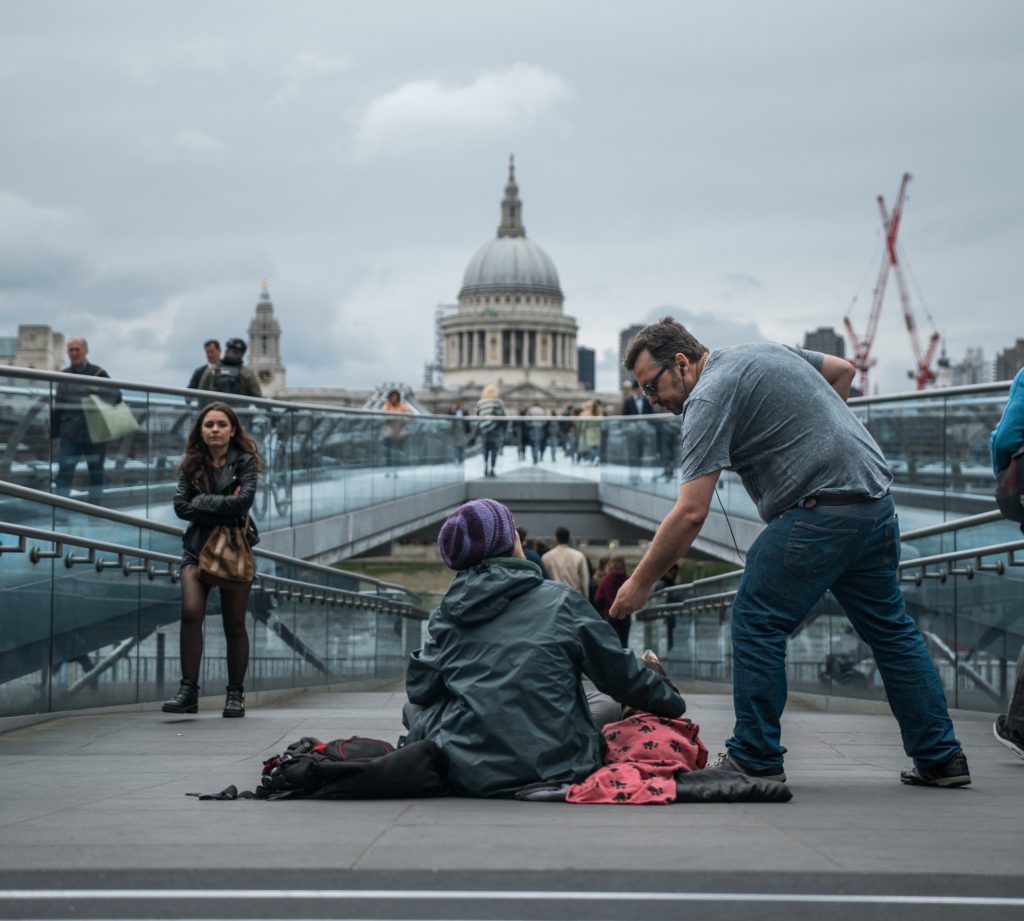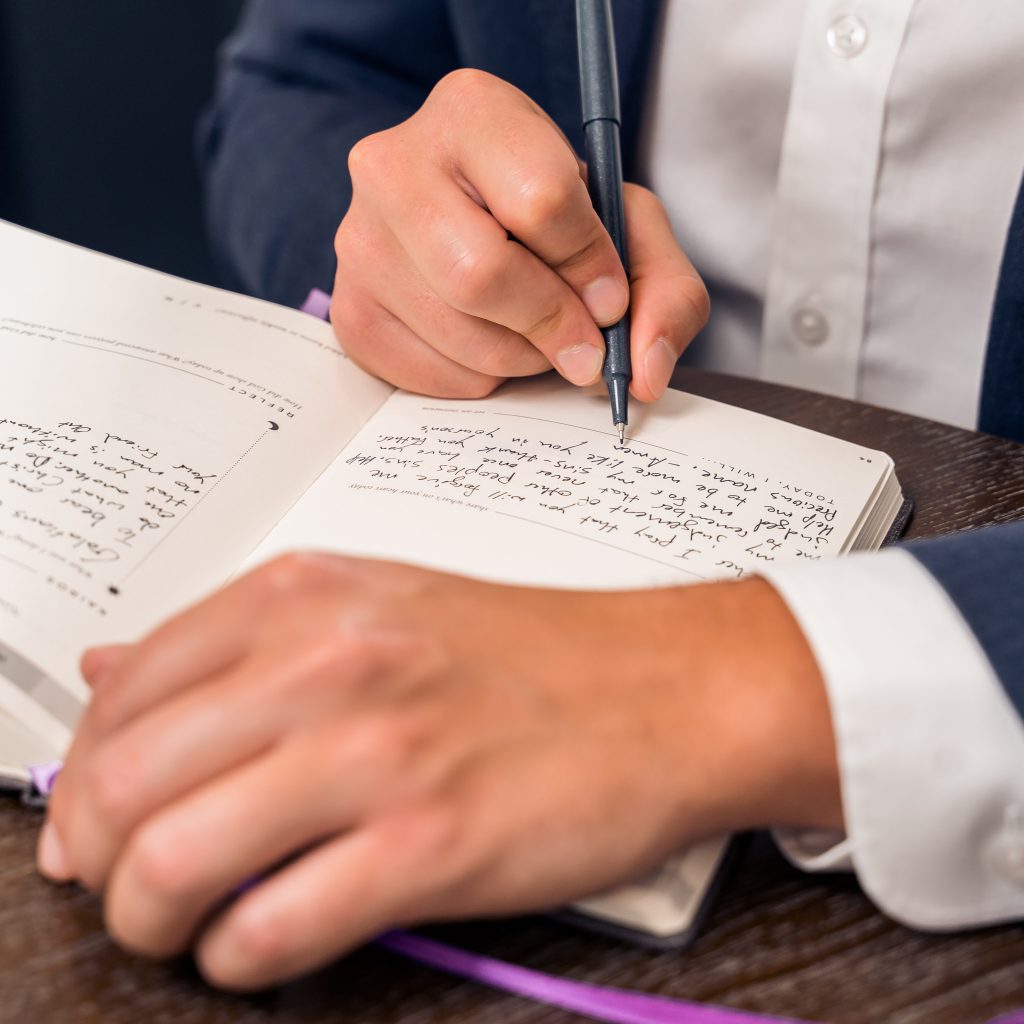Giving and Gratitude
‘Feeling gratitude and not expressing it is like wrapping a present and not giving it’
William Arthur Ward
In a workshop a child once asked ‘why we need to be nice to other people?’ The question was so unexpected, I was thrown. The bible tells us. Our parents tell us. The tv tells us. All our lives, we’re told to be nice to others but I never really thought about why. Are their physiological or psychological benefits? I began scourging through research papers and books and I found my answer: Giving/Gratitude.

Let’s jump back to the stone age as our ancestors hunted and foraged in order to survive. If their tribe managed to take down a mammoth, they would have food for weeks. Their children would survive and their tribe would continue. Now read back over that sentence. Notice I said tribe. I didn’t say ‘if a person’. Why? Because our ancestors would not have survived if they hunted alone. They needed to be among other people. Now we’ve already discussed the element of connection but connection was not an understood concept in the age of neanderthals. People worked alongside others for the end goal of survival rather than love. While this did generate bonds, the best way our ancestors could be accepted by a tribe is through giving. They would have to offer something in return for acceptance. And with this, the creation of giving. Now fast forward five million years and 1% of the world population has 90% of the world’s wealth while children die of starvation in Africa every day. And no, this is not an attack on billionaires. Instead, it is emphasising the death of giving for the wrong reasons. While I question why more people are not giving, everyone is now wanting more and more. With the explosion of marketing and materialistic society, we see children disgusted with their iPhone 6 because they want the iPhone 12 and so; a lack of gratitude appears.

Giving
The reason why we should give to other people is that it makes us feel good. When we give to someone else, positive neurochemicals are released in our brain, possibly because of the genetic links between giving and survival. I’m sure we have all experienced this. We are chuffed when we give to charity, offer our seat on the bus, even sharing a piece of chocolate with friends There is an episode in the tv series ‘Friends’ where one of the characters makes the claim that you only do nice things for other people to benefit yourself. Ever given money to a homeless person or gave up your seat on public transport and looked for a smile of approval from someone else? Of course you have. This is because we have a tendency to need positive approval off other people to do something that makes us feel good. But regardless of if you do it for the wrong reasons, the act of giving is still more important. It’s better than the person who never gives. So don’t criticise. We give to others because it makes us feel good but then comes the question, why has giving become so rare? One factor is the same selfishness that would make us want to give. We live in a competitive environment where we want to be better than those around us. We want to be smarter, richer, happier. So why would we want to give up our highly valued knowledge, money and resources? In order to get the upper hand, we cannot give anything away. This is a mindset that ignores mental health, despite creating a paradox. All of our end goals include positive mental health or being happy but we carry out acts that prevent positive mental health to get there.

This then coincides with the portrayal of the world that the media creates. The media makes out that the world is incredibly dangerous. Everything and anything can kill you. This is why we still have people who are afraid to fly. They publicise the rare plane crash rather than the millions that successfully land everyday. This permits the world to run on emotions rather than statistics and rationality. In a similar vein, we shouldn’t give to others because they will just take advantage of us. Give a homeless man a fiver and they will spend it on drugs. Give the charity the money and it won’t go to the people who need it. Everyone is out to get you. Combine this competitive environment and the world is dangerous perspective with a constant need to be better and the result is a world where nobody gives.
Somewhere down the line, it became uncool for young people to want to help others. But when we ask teens why, they’re unable to answer. Empathy or the ability to understand how someone else is feeling is important but for our mental health, we need it alongside compassion. We should want to give and we should want to alleviate other peoples’ pain. Why? Because it makes us feel good, and that is all we need. Change our expectation of what we expect in return and we reap the full benefits of giving! So how do we teach our children and students to give? We can tell them as much as possible but the only way they will learn is through experience. We are our future generation’s biggest role models so we should teach them to give by giving ourselves. Additionally, allow them to experience the positive sensations of giving and they will want to experience more of it themselves. But before we can start giving to other people, we need to learn how to give to ourselves. And the best thing we can give is gratitude.
Gratitude
Positive psychologist Martin Seligman created an experiment where hundreds of participants wrote a letter of gratitude to someone specific and then had to personally present it to that person each week. They reported having higher levels of well being as a result. Two psychologists by the names of McCullough and Emmons got students to write a few things about something specific each week. One group wrote about what they were grateful for, another group wrote about what displeased them and the final group vote about events that made them feel positive or negative. After 10 weeks, those who wrote about their gratitude had higher levels of well being. Therefore, the evidence is appearing to promote gratitude. So as some armbands to start the process of becoming more grateful, we recommend a gratitude diary. If that’s not your thing, call it something professional like a gratitude logbook. If you’re reading this, I’m sure you’re gone past the stage of society judging you for taking care of yourself. So make the change, even though your mind might tell you it’s weird or unnatural. Don’t ignore the research. People have better mental health when they are grateful.

Jealousy and envy are two of the nastiest emotions that can take a hold on us. We are jealous when we are afraid of losing something or someone close to us and we are envious when we want something we don’t have. This society is obsessed with progress and while progress is essential, society is using an incorrect measurement. We judge our progress on how close we get to what other people have. We are constantly comparing to people who have more than us. Movie stars, CEOs, Tom across the road. And the issue with this is that it does not account that every individual is very different so you can never be just like someone. This then results in feelings of disappointment and sadness. It is a losing game. Gratitude is the opposite of this. It is downward comparison. It is looking at your position compared to the less fortunate. Yes, you don’t have the brand new iPhone, but children in poverty are making these phones so they can survive. You might not have the brand new Adidas runners, but some children in Africa don’t even have shoes. And you might not have got that promotion, but John down the road can’t even get a job.

But then you feel sympathy for the less fortunate so how can we correct for that? By giving! Balance both and don’t be too unrealistic with expectations and you are moving towards positive mental health. Give as much as you can, strive for progress, but always be grateful for what you have.
Yours Sincerely,
The Motus Movement.